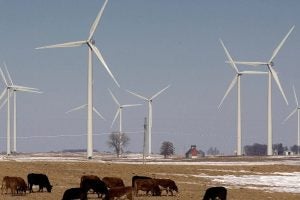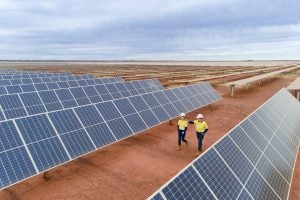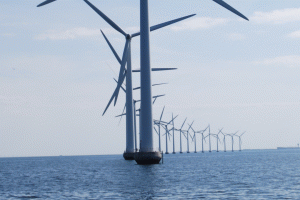 March 21, 2024
by Stefan Koester
Energy
Regulations
Renewable Energy
Sustainability
March 21, 2024
by Stefan Koester
Energy
Regulations
Renewable Energy
Sustainability
IRS comment period for the 45V clean hydrogen tax credit guidance closed on February 26, 2024. This credit provides a tiered production tax credit for clean hydrogen depending on its emissions intensity. The draft guidance relies on three pillars to ensure emissions integrity – additionality, temporal and geographic matching. Judging by some comment responses, controversial reactions to each of these pillars were significant, with many commenters suggesting that the courts will have the final say on how these tax credits will be finalized. Will all this uncertainty derail the clean hydrogen economy?
 February 13, 2024
by Roman Carlitti
Climate change
Fossil Fuels
Renewable Energy
February 13, 2024
by Roman Carlitti
Climate change
Fossil Fuels
Renewable Energy
USPS’ decade-long effort to replace its antiquated vehicle fleet is threatened to be further delayed by multiple pending lawsuits challenging the agency’s compliance with NEPA.
 January 31, 2023
by Reilly Wright
Energy
Oceans
Renewable Energy
January 31, 2023
by Reilly Wright
Energy
Oceans
Renewable Energy
Offshore wind has been a viable energy source internationally for many years. Historically, the United Kingdom, Germany, and Denmark lead the industry’s technological development, but China is expected to have the largest cumulative installed offshore…
 January 24, 2023
by Taylor Fisher
Renewable Energy
State and Local
January 24, 2023
by Taylor Fisher
Renewable Energy
State and Local
Iowa is often seen as a drive-through state, known for its flat interstates, tall cornfields in the summer, and more recently, the seemingly never-ending array of windmills seen through car windows.
At first glance, wind energy seems the perfect renewable…
 November 14, 2022
by Diego Huerta
Energy
Renewable Energy
November 14, 2022
by Diego Huerta
Energy
Renewable Energy
The Infrastructure Investment and Jobs Act (A.K.A. the Bipartisan Infrastructure Bill) provides 84 million dollars over the next three years to the Department of Energy (DOE) for Enhanced Geothermal Systems (EGS) research and development.[1] EGS are used…
 October 18, 2022
by Jesse Valente
International
Renewable Energy
October 18, 2022
by Jesse Valente
International
Renewable Energy
Queensland, Australia recently announced a renewable energy plan that makes it a model for community-backed public-private partnerships in the renewable sector. Backing from multiple levels of government, public appetite for renewable energy, and industry…
 October 19, 2021
by Jaclyn Lee
Energy
Renewable Energy
State and Local
October 19, 2021
by Jaclyn Lee
Energy
Renewable Energy
State and Local
In September 2021, the California Public Utilities Commission (CPUC) began its highly anticipated proceeding to reevaluate the state’s net energy metering successor (NEM 2.0) tariff. Expected no later than January 2022, the decision from the national leader in solar electricity production could have far-reaching impacts on the future of customer-owned solar generation and battery storage.
 April 20, 2021
by Blake Ellis
Climate change
Energy
Fossil Fuels
Renewable Energy
April 20, 2021
by Blake Ellis
Climate change
Energy
Fossil Fuels
Renewable Energy
In February 2021, the state of Texas experienced unprecedented power outages caused by severe winter storms. Conservative politicians and media were quick to blame the use of renewable energy as the culprit of the outages. The facts present a different explanation.
 March 29, 2021
by Rachel Schwartz
Oceans
Renewable Energy
Sustainability
March 29, 2021
by Rachel Schwartz
Oceans
Renewable Energy
Sustainability
On March 8, 2021, the Biden Administration took a significant step toward finalizing the approval of America’s first commercial-scale offshore wind farm. Vineyard Wind 1, located 14 miles off the coast of Massachusetts, has the potential to power 400,000 homes.
 January 22, 2021
by Farrah Yan
Energy
Renewable Energy
January 22, 2021
by Farrah Yan
Energy
Renewable Energy
COVID-19 has brought a lot of uncertainty to renewable energy projects. Even though the government recently enacted bills to extend renewable energy tax credits, whether this relief will be effective is of a question. As Joe Biden has put great emphasis on funding clean energy projects for his upcoming term, the questions are: what are some effective methods to boost the renewable energy industry? Are these methods viable under COVID-19?











